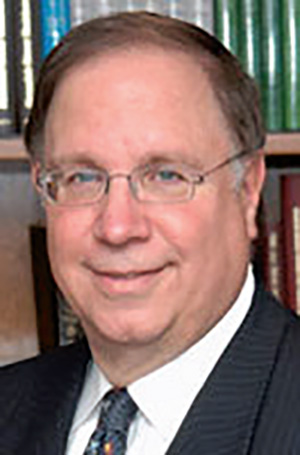
Part VIII
In keeping with David Ben Gurion’s pledge: “We shall fight with Great Britain in this war as if there was no White Paper, and fight the White Paper as if there were no war,” the Hebrew University in Jerusalem played an extremely important part in fulfilling this commitment.
Following a Jewish Agency appeal for mobilization on September 3, 1939, out of a population of approximately 600,000, 130,000 men and women enlisted for duty, including 400 physicians. In an effort to preserve a judicious “balance” between the Jews and the Arabs, the British Mandatory Government declined the offer. However, the exigencies of war forced the British army to circumvent political considerations and contact the staff of the Hebrew University through personal relationships and connections to ask for their help.
In “As Much As We Could Do: The Contribution Made by the Hebrew University of Jerusalem and Jewish Doctors and Scientists From Palestine During and After World War II,” Rivka Ashbel, an Israeli scientist, documents the contribution the Jews of the Yishuv made to the war effort.
Ashbel, who worked with Professor Saul Adler in the Hebrew University’s department of parasitology, noticed that there were never any written applications, agreements, requests, memoranda or thank you notes between the Allied medical officers taking courses at the Hebrew University and the Jewish staff at the university. All communication was verbal.
Attempts by Ashbel to obtain written records of this relationship were rebuffed by the faculty dean. To ensure future generations would know of the extent of the cooperation between the Hebrew University and the university’s Hadassah Hospital and the Allies, she conducted her own research. Ashbel had not realized the substantial, impressive and diversified assistance the Yishuv provided to the Allied forces. This essay is a condensed account of this immense support.
Maps, Compasses, Repairing Radio Tubes
When the British army encountered considerable difficulty with maps needing immediate modification, Ashbel said it approached Professor Ernst Rosenthal to manufacture compasses. After the success of this manufacturing venture, the British requested the repair of 500-watt radio tubes that were a meter long and 30 centimeters in diameter. There was only one radio station in the Middle East broadcasting messages to submarines, which were the only means to prevent supplies from reaching Rommel. The station had two transmitters installed with these tubes. Since they could not obtain new transmitters during the war, the British had to close down the transmitters while the tubes were being repaired. After finding the 500-watt tubes too difficult to repair, the British brought five-kilowatt tubes, which were 10 times more powerful. Repairing tubes was arduous and complicated, requiring master craftsmanship.
Airplane Transmitter Panels
Manufacturing airplane transmitter panels used in stabilizing transmission frequencies posed another challenge because a quartz panel in an electronic circuit helped it achieve maximum accuracy. Adjusting the thickness of the quartz panels enabled the transmission codes to be changed. Codes had to be replaced repeatedly to preclude the enemy from discovering them. Until the staff of the Hebrew University’s physics department was asked to cut the crystals and ground them, only two facilities—one in the United States and the other in England—had the needed expertise.
Bromide: A Fuel Additive
During the war, Palestinian Jewish scientists were the primary source of bromide, a chemical used in manufacturing a fuel additive that increases octane levels, and found in large quantity in the Dead Sea. British aircraft, with piston-propelled engines, required high-octane fuel to operate.
After the process of converting bromide to calcium bromide in solid form was developed by the department of physical chemistry under Professor Ladislau Farkas at Hebrew University, the results were sent to the Dead Sea Works, where they extended the process. In this way, they were able to ship regular supplies to England without any danger
Camouflage, Insulation, Vitamin C, Methyl Chloride, Cutting Iron Underwater
The department also formulated means to camouflage the camps, storage facilities, tents and equipment of the British units based in the Western Desert opposite Rommel. Eight different types of paint were developed for use by soldiers. The university staff devised methods to insulate British tanks from the desert heat, prepared a process for delivering Vitamin C to British soldiers fighting in the desert, produced methyl chloride for refrigerators in ships (because unlike other gases it did not explode even when sustaining a direct hit) and developed an unconventional process to cut iron underwater to clear ships sunk by the Italians so that vital supplies could be transported to the region.
Repairing X-Ray Machines
When physicians in the Australian army arrived in Palestine with Allied forces, they approached the Mandatory Government about repairing their X-ray equipment, and were assured that no such resource existed. A number of the scientists who knew about the Hebrew University went directly to the staff, who agreed to help repair the machines. They soon learned that university scientists were able to assist them in other areas through their scientific discoveries.
Courses for Allied Physicians
Some of the information the Allied physicians received was in the form of courses focusing on relevant civilian medicine and issues they might encounter in the Middle East and the Near and Far East. They were allowed to attend lectures and staff meetings given by Hebrew University’s Pre-Faculty of Medicine and by physicians at Jerusalem’s Hadassah Hospital. Among the most discussed topics at these sessions was viral hepatitis (then known as jaundice), a ubiquitous disease found in the military. Medical officers were especially worried about the disease since the chance of soldiers becoming infected increased significantly in their very cramped living space. There were also courses on malaria, disease-carrying insects, worms, snakes and dysentery.
By Alex Grobman, PhD










